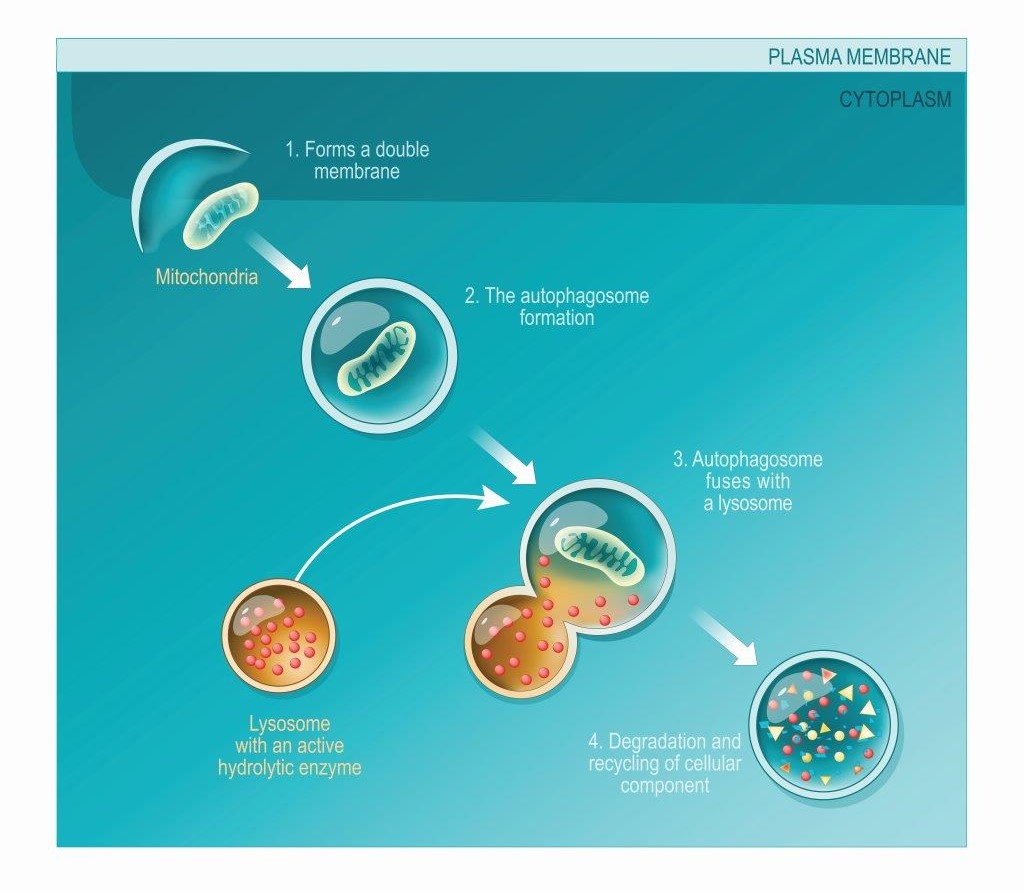Autophagy is defined as your body’s process of reusing old and damaged cell parts. Over time, parts of cells can become defective or stop working and become litter or junk in an otherwise healthy cell. Autophagy acts as your body’s cellular recycling system, allowing a cell to disassemble the defective junk parts and repurpose the salvageable bits into new, usable cell parts. By removing the junk that was taking up space and slowing the functioning of the cell, autophagy remakes the clutter into the cell components needed, optimizing the cell’s performance.
In addition to recycling damaged and non-functional parts of cells, autophagy is important to help to minimise cell damage.
Autophagy
declines with age and is thought to be inhibited by eating too much, too often and a sedentary lifestyle.





